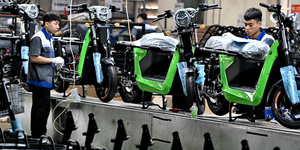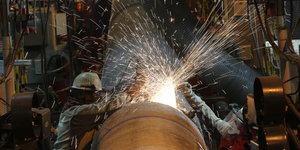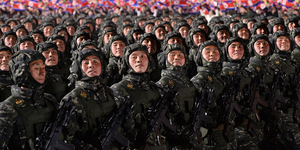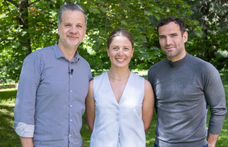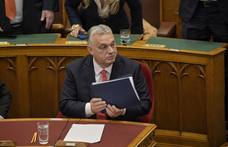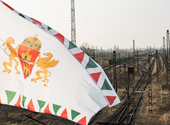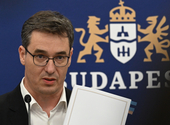Frustrated Hungarian intellectuals have throughout the 20th century often been prone to looking to foreign countries for models of ideal societies. In the last days of Old Hungary, Oszkar Jaszi proposed in his book 'The Future of the Monarchy' that Hungary should become the 'Switzerland of the East'. He proposed a United States of the Danube to solve the country's nationalities problem, granting cantons to the Monarchy's Hungarians, Serbs, Romanians, Slovaks and Ruthenes.
A lack of enthusiasm on the part of those same nationalities led to the plan's demise, but in the 1930s, reformers and radical populist writers turned to Scandinavia for a vision of the perfect society.
Denmark, "a country of peasants in evening dress" was the first model, before intellectuals' attention drifted first to Finland - a country which avoided being dominated by Germany or the Soviet Union.
Intellectuals once again looked for a way out after Hungary fell into the Soviet bloc in the 1950s. Intellectuals first looked to Yugoslavia. Later, as the regime change approached, neutral countries like Austria and - once again - Finland became the centre of attention.
Today, with four successful democratic parliamentary elections and four years of European Union membership, I think I can see another distant European country that is serving as a model for our society.
This country was first seen by a Hungarian in the 14th century. The man in question, Lorinc Tar, even left us an account of his travels.
The latest model can be found on the island of Ireland - and in the less happy part of that island which is part of the United Kingdom: it is Ulster.
We have the riot police, the handguns, the water canons, the plastic bullets. We also have a rampaging tank, and party offices and cars in flames. On one side stands a frustrated right wing, on the other a left wing that has won two parliamentary elections in a role but which remains wholly unsatisfied with its electoral achievements.
The Left's leader, prime minister Ferenc Gyurcsany, gets more desperate for love as the hatred felt for him grows. But neither his party, the Socialists, nor his coalition partner, the Free Democrats, have a chance of representing any kind of national consensus. The people in power are trying to win the approval of the right wing without showing any readiness for compromise.
They clearly believe that any such gesture would be interpreted as a sign of weakness by the other side, which would go on to demand more - until they were in a position to win an early election. They feel this is too big a risk to take, since the Socialists must win in 2010 and 2014. Socialist supporters are adamant that their despised right-wing opponents should never again take power, because this would ruin the country and lead to a renewed Holocaust.
Meanwhile the opposition Fidesz party is increasingly a prisoner of its own radicals, just like Sinn Fein in the first half of the 20th century - to the extent that it it no longer even has time for the Hungarian Democratic Forum, a potential ally. The party is surrounded by radicals who are increasingly convinced that force is the only language the Left understands - and that the wounds they have suffered means they are fully entitled to wield any force they want to.
The Irish Famine, when the English and their unionist allies looked on indifferently as 1m Catholic Irish died of hunger while grain and meat was shipped off to England, took place more than 160 years ago. In Hungary, the terror of the 1950s, the crushed revolution and the robber-baron privatisations of the 1990s have a similar mythical magnitude for the Right.
Vengeance-driven politics on one side, uncertainty on the other. There is no hope of establishing the kind of decades-long, multi-party division of power that the Austrian Socialist and People's Parties built up in the 1960s. Where will our culture of hissing snakes, poisoned chalices and ultimatums lead? The Irish national legend has it when Saint Patrick converted them in the 5th century, he put Ireland's snakes into boxes and threw them into the sea. But who'll do that for us?
János Pelle

